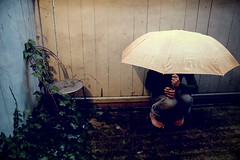Seasonal Affective Disorder: How to Cope
I love sharing my story and offering ideas about taking control of one’s own mental health.
So, on December 26 when I receive an email and a voice mail inviting me to be a guest on a radio show, I was overjoyed! My first time ever on the radio!
I was being asked to discuss Seasonal Affective Disorder (SAD) on CKNW in Vancouver.
The producer had read an interview I’d done with CBC about Seasonal Affective Disorder a few years back, and wanted me to share how I use Nia to help cope with my own seasonal depression/seasonal affective disorder (or whatever you’d like to call it).
I was really excited to share my coping strategies, and as you know, I wholeheartedly embrace any opportunity I get to be a n advocate for living life well with a mental health issue. I feel like one of the lucky ones. I was able to find my way out of an exercise addiction and anorexia and have proven that I live successfully with Bipolar Disorder through Nia. So I long to share how that is possible in any way I can.
n advocate for living life well with a mental health issue. I feel like one of the lucky ones. I was able to find my way out of an exercise addiction and anorexia and have proven that I live successfully with Bipolar Disorder through Nia. So I long to share how that is possible in any way I can.
When I called in to the show, unfortunately, I wasn’t able to share any information about coping.
Instead the host asked me (twice) to defend the existence of SAD, challenging the difference between it and the normal “winter time blues” that “everyone experiences”.
Put on the spot, I feel like I gave an adequate answer (twice), stating that while it’s true that everyone experiences fluctuating moods, folks with SAD have lasting symptoms of depression, lowered energy, irritability, lack of concentration, etc. (more symptoms are listed here). That and SAD truly interferes with daily activities, affecting self care, household, family and work responsibilities. It is not something that one just simply “gets over”. It has a biochemical basis, after all.
I’ve written before about the problems with comparing mental health issues with things that “everyone experiences” , and I hope that, in at least some small way, I was able to convey that on the radio.
Sure, everyone gets headaches. But would we compare that to migraines? Not a chance! And we all experience digestive issues from time to time. But can you imagine saying a passing stomach upset or heartburn is just like having irritable bowel disease? No.
What I was really hoping to say on the radio, which I’ll say here instead is:
SAD is serious. And legitimate. It can evolve into a diagnosis of depression or bipolar disorder (as it did in my case). And there are so many variants and degrees of SAD, ranging from mild to quite severe.
Just like in many other medical situations, I have found there is not a “one size fits all” kind of treatment. It seems to be quite individualized.
In my case, I bought the expensive SAD lamp and guess what? It triggered mania! Not a desireable outcome at all. That said, some folks will benefit from the lamp, others from meditation, others from supplements or physical activity. There are countless creative ways to manage, the first step of which I’ve learned is to ask for help – from your family, friends, doctor, naturopath, etc. This is, for many of us, a challenging task as we many be reluctant to a) acknowledge how we’re feeling and b) seek the help we need/deserve.
One of my major coping strategies has been to keep active through Nia. It’s given me more than just physical fitness. Through Nia I also experience a boatload of personal development opportunities and connection to a strong community of like minded people – check out the benefits I’ve experienced by committing to my Nia practice here.
My best advice for you in your own coping journey? Keep searching. You will find what you need (and most likely you’ll find that somewhere deep inside of you… ). If that sounds corny to you, I get it. Take me back 8 years or so, and I’d call bullshit on this kind of idea. Now, however, I believe this to be true.


